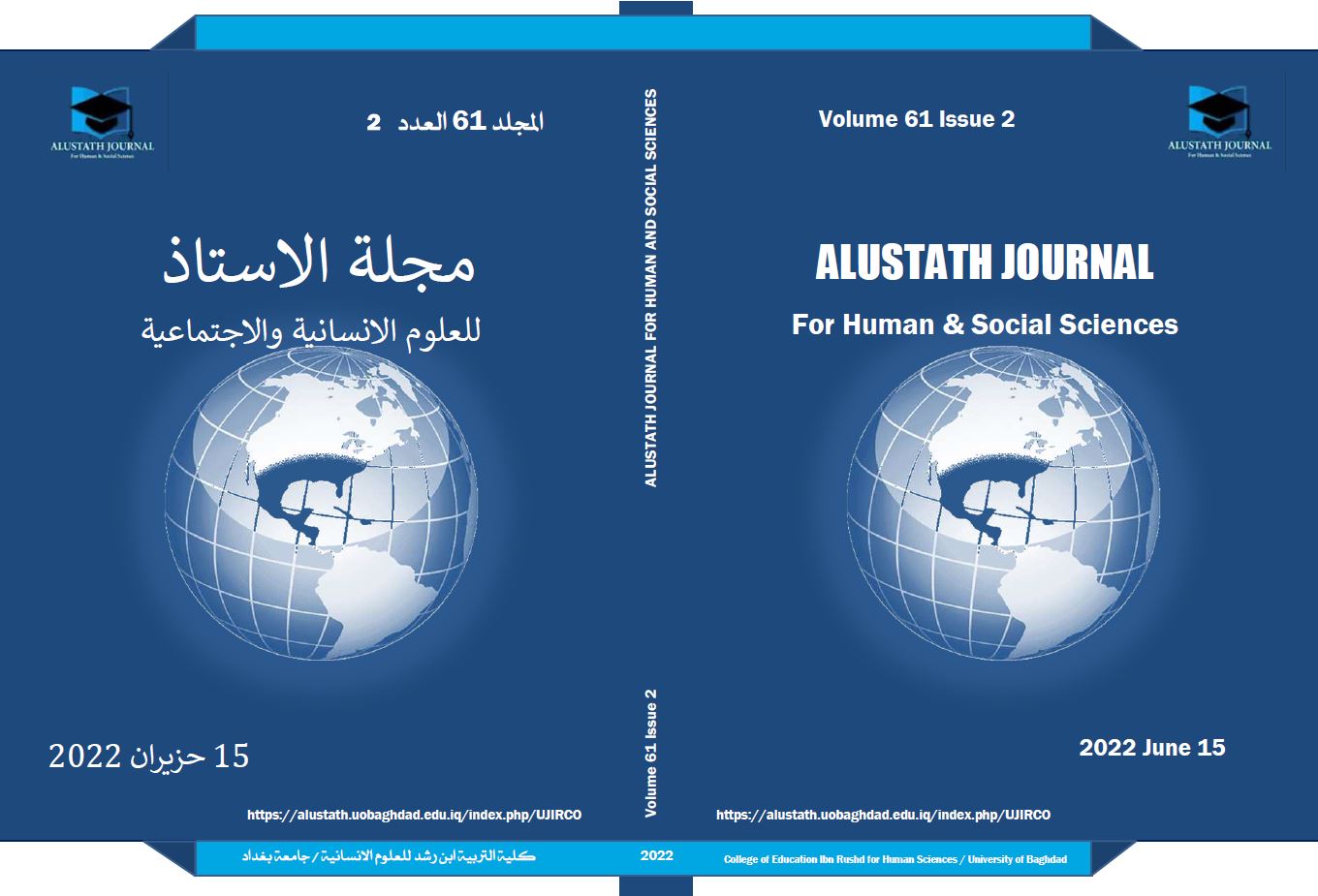Critical and Linguistic Reading in the Interrogative Style in the Arabic Grammar Book for the Sixth Grade of Intermediate School as a Model
DOI:
https://doi.org/10.36473/ujhss.v61i2.1598Keywords:
methodology, question mark, expression, brief, significanceAbstract
The curriculum of the linguistic study is the link between the young learner and the study of the Arabic language, as well as being responsible for transferring Arabic language sciences to the young learner. It is a granular tool to clarify the importance except the performance of the teacher in his presentation of the linguistic material. On the basis of that, the examination of the subjects of these curricula according to the principle of (feedback) to present critical studies on them was of great importance, which this study entitled "Critical and linguistic reading in the interrogative style, the Arabic grammar book for the sixth grade of middle school as a model", as it came with an introduction Three topics and a conclusion. The first topic included what is permissible and what is not permissible in the interrogative section, the second topic was included in the parsing of interrogative tools, the third topic included disparaging brevity and tedious redundancy in the presentation of the interrogative section, and the conclusion included the important findings of the study.
Downloads
References
• Ibn Ya’ish, Muwaffaq Al-Din Abi Al-Baqa, (2001), investigation: Dr. Emile Badi' Yacoub, Explanation of the Detailed by Zamakhshari, 1st Edition, Dar Al-Kutub Al-Ilmia, Beirut - Lebanon
• Abu Al-Abbas, Muhammad Ali, (d.T.), Al-Arab Al-Maysir, Dar Al-Tala’i.
• Al-Asmar, Zarzis Issa, 1985, Dictionary of Expression, 12th edition, Dar Al-Ilm for Millions, Beirut - Lebanon.
• Al-Ansari, Ibn Hisham, investigation: Dr. Abdullah Latif Muhammad Al-Khatib, (2000), Mughni Al-Labib on the Books of Al-Arabism, 1st Edition, Heritage Series, Kuwait.
• 5-Al-Awsi, Dr. Qais Ismail, (1988), Demand Methods for Grammarians and Rhetoricians, Ministry of Higher Education, Iraq.
• Hassan, Abbas, Arabic grammar, 3rd edition, Dar Al Maaref.
• Al-Hamd, Dr. Ali Tawfiq and Youssef Jamil Al-Zoubi, (1993), Al-Wafi Dictionary in Arabic Grammar Tools, 2nd Edition, Dar Al-Amal, Amman - Jordan
• Al-Samarrai, d. Fadel Saleh, (2003), Meanings of Grammar, 2nd Edition, Dar Al-Fikr, Amman - Jordan.
• Sarhan, Hussein, (2007), Dictionary of Grammatical Tools, Al-Iman Library, Cairo, Egypt.
• Sibawayh, Amr bin Othman bin Qanbar, investigation: Abdel Salam Haroun, (2004), Sibawayh’s book, 4th edition, International Company, Cairo - Egypt.
• Valid. Dr.. Nihad Hasobi and others, (2019), Arabic grammar for the sixth literary grade, 11th floor, Ministry of Education, Iraq.
• Saleh, Dr. Nihad Hasobi and others, (2019), Arabic grammar for the sixth scientific grade, 11th edition, Ministry of Education, Iraq.
• Al-Tabatabai, Muhammad Hussein, (2010), Al-Mizan fi Tafsir Al-Qur’an, I 1, Dar Al-Adwaa, Beirut - Lebanon.
• Abdullah, Ahmed Jasser, (2010), Grammar and Syntax Skills, 1st Edition, Dar Al-Hamid, Amman - Jordan.












